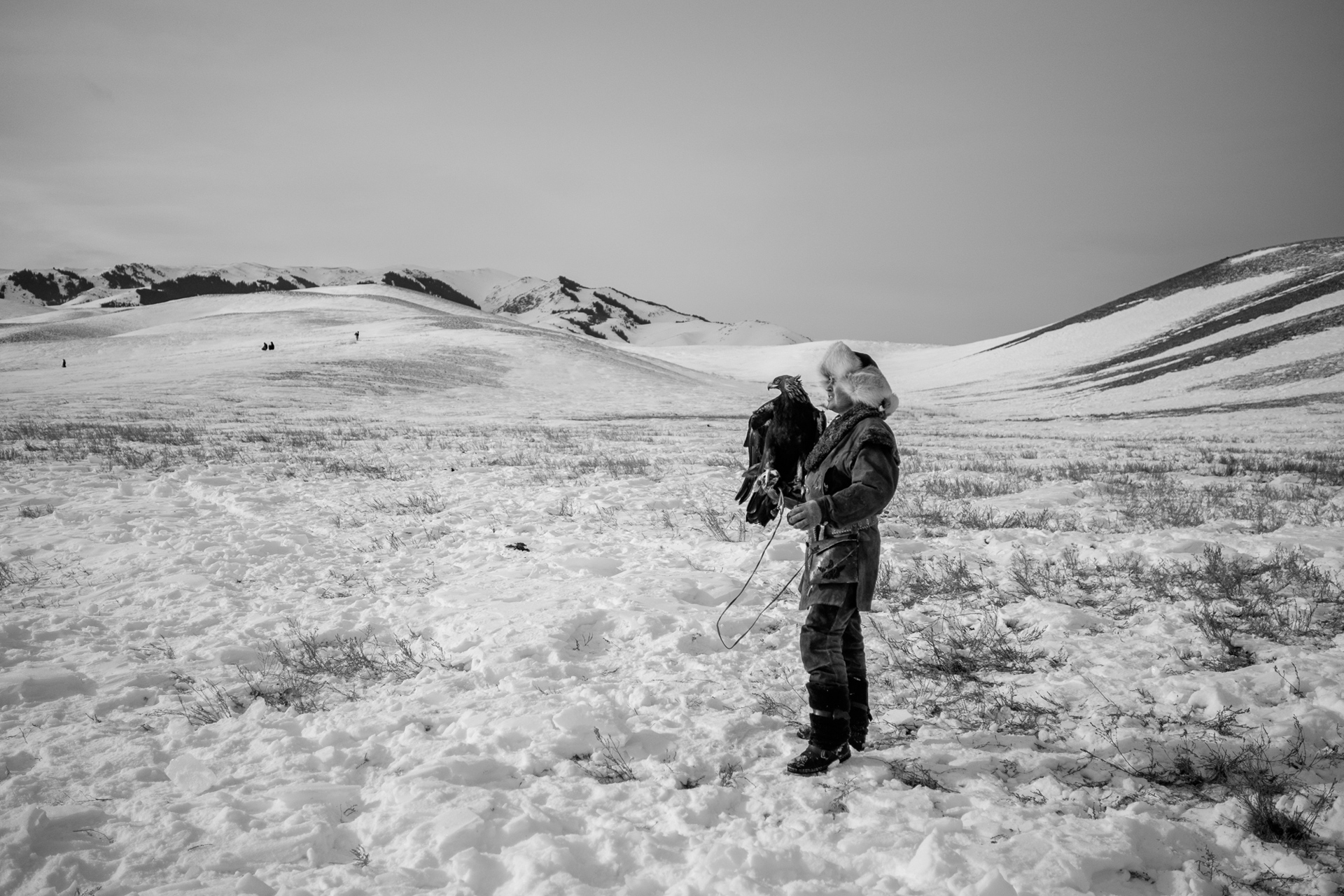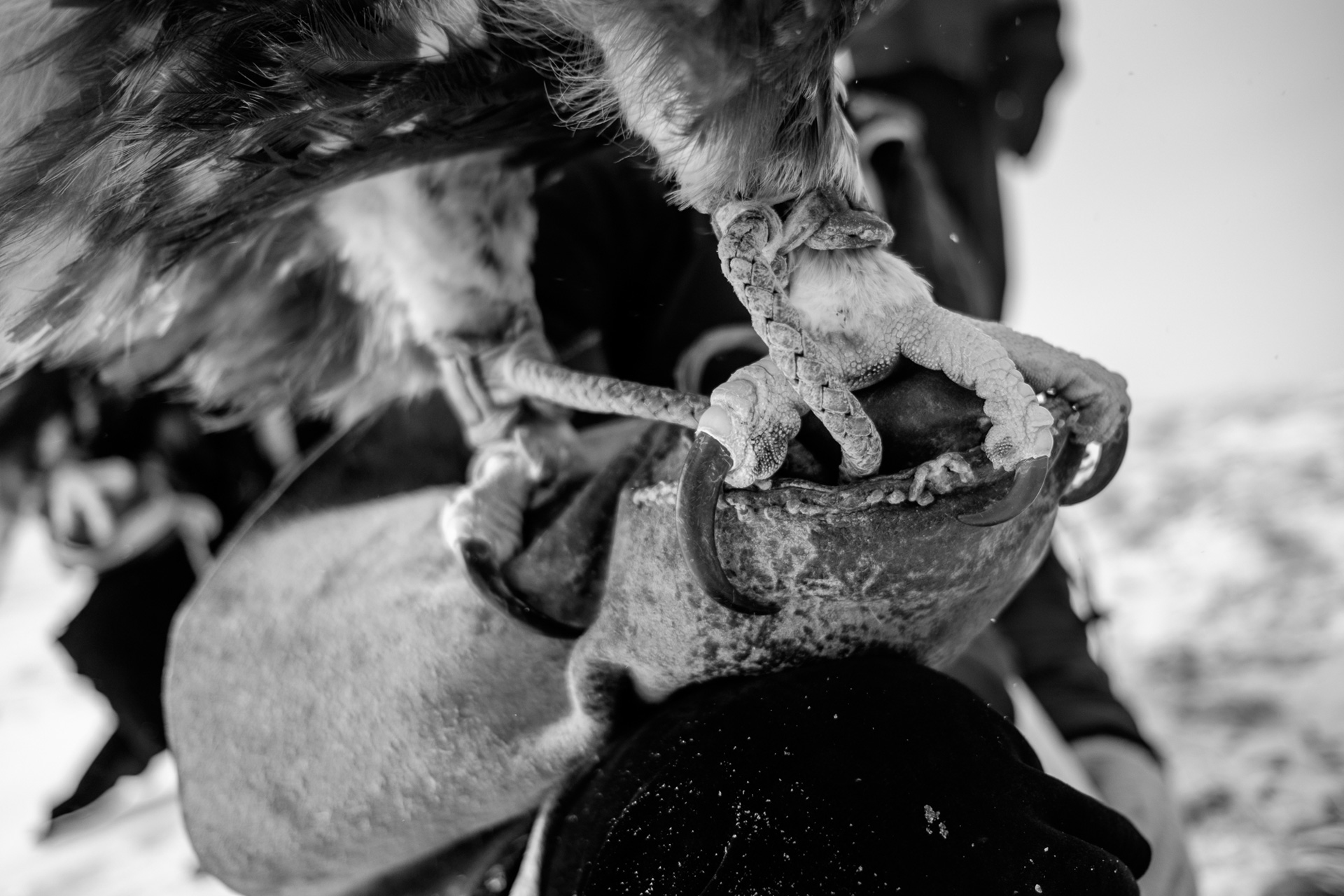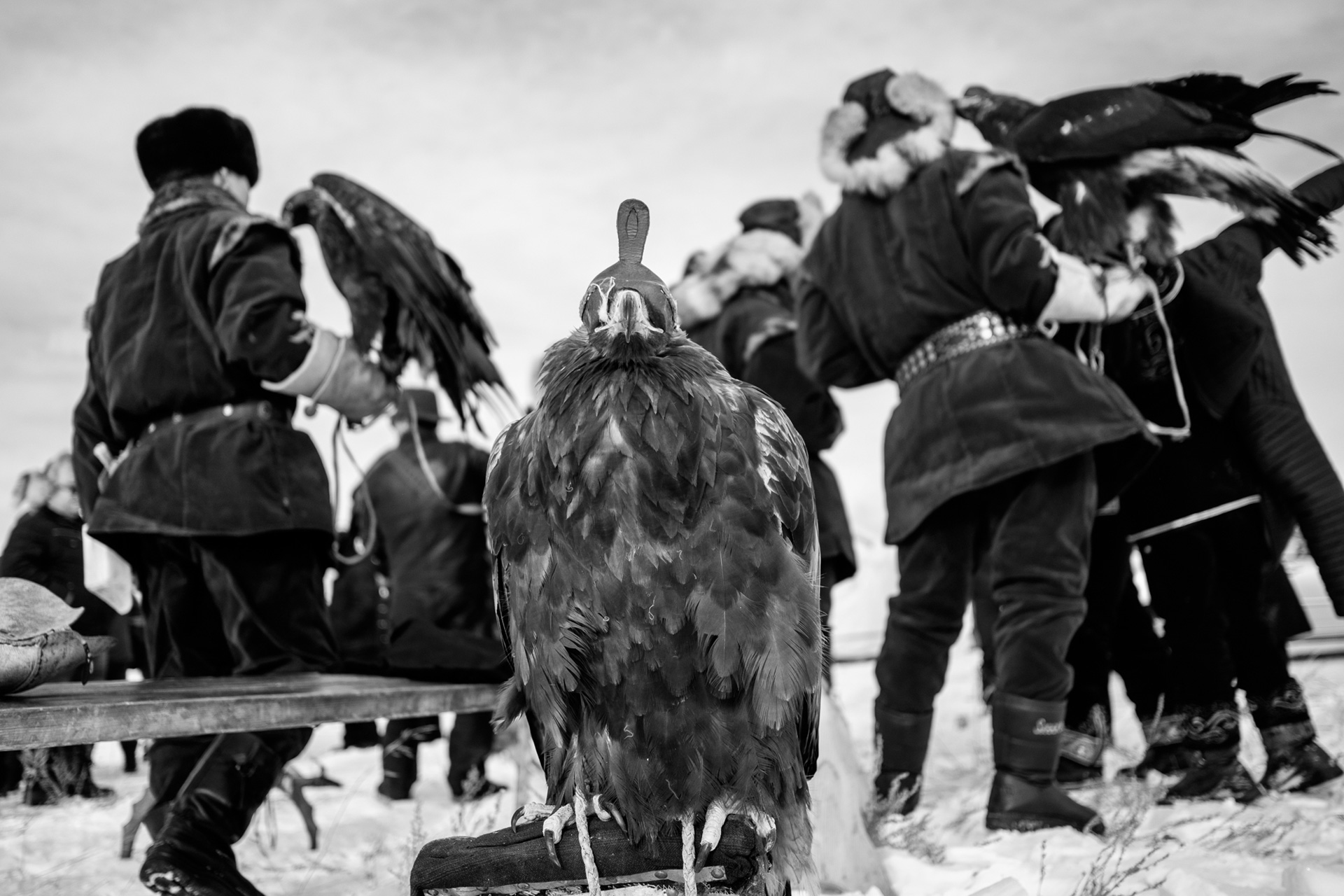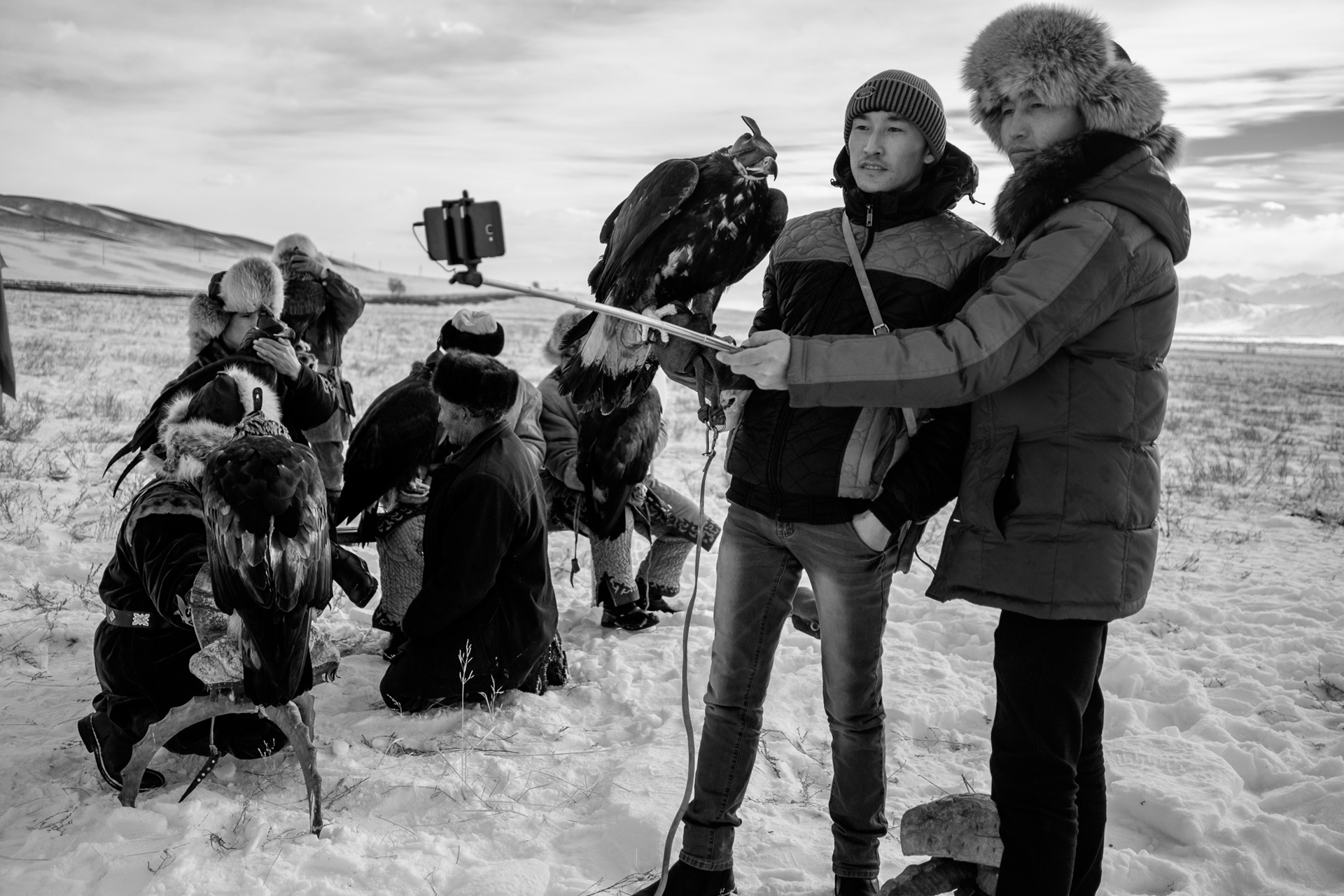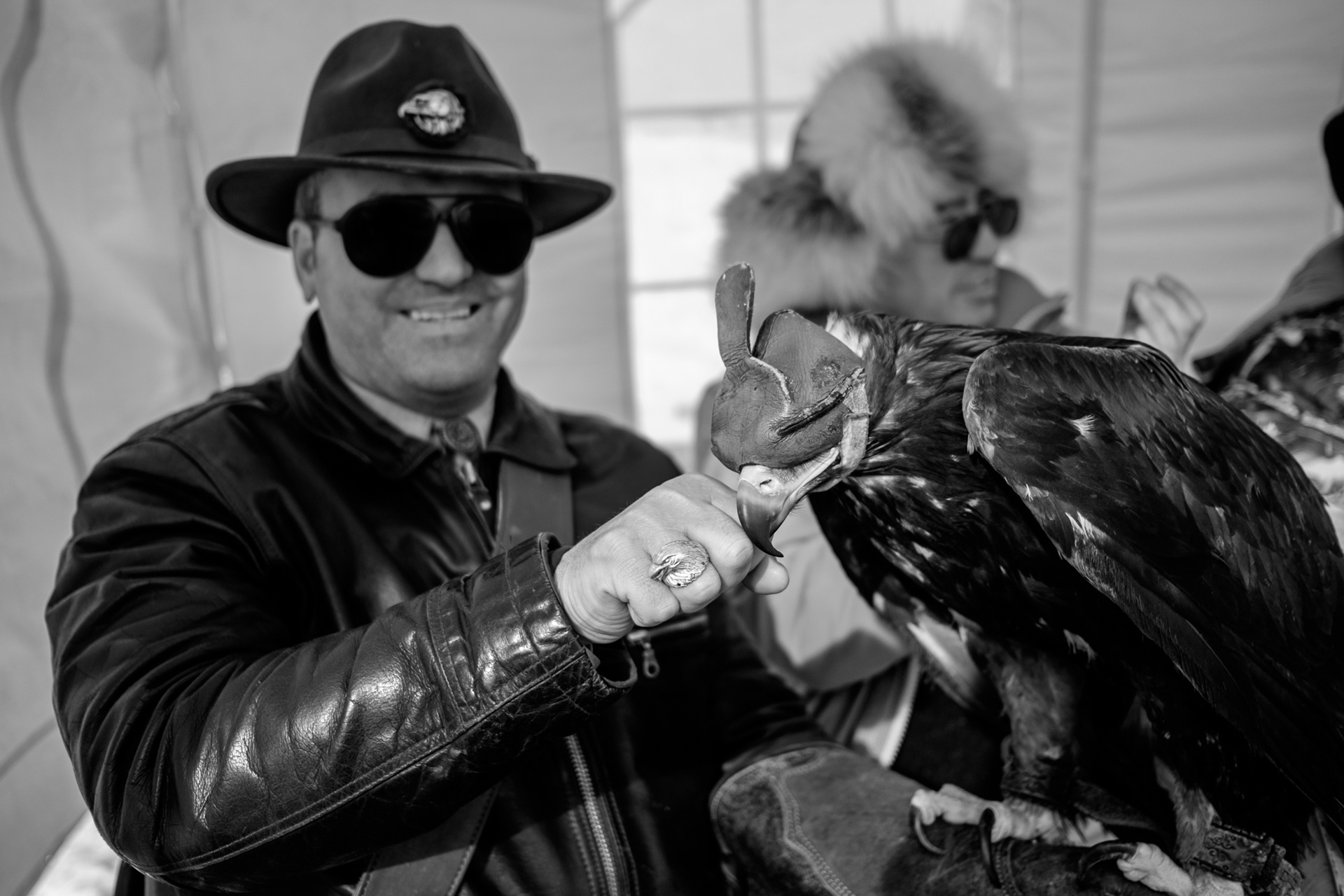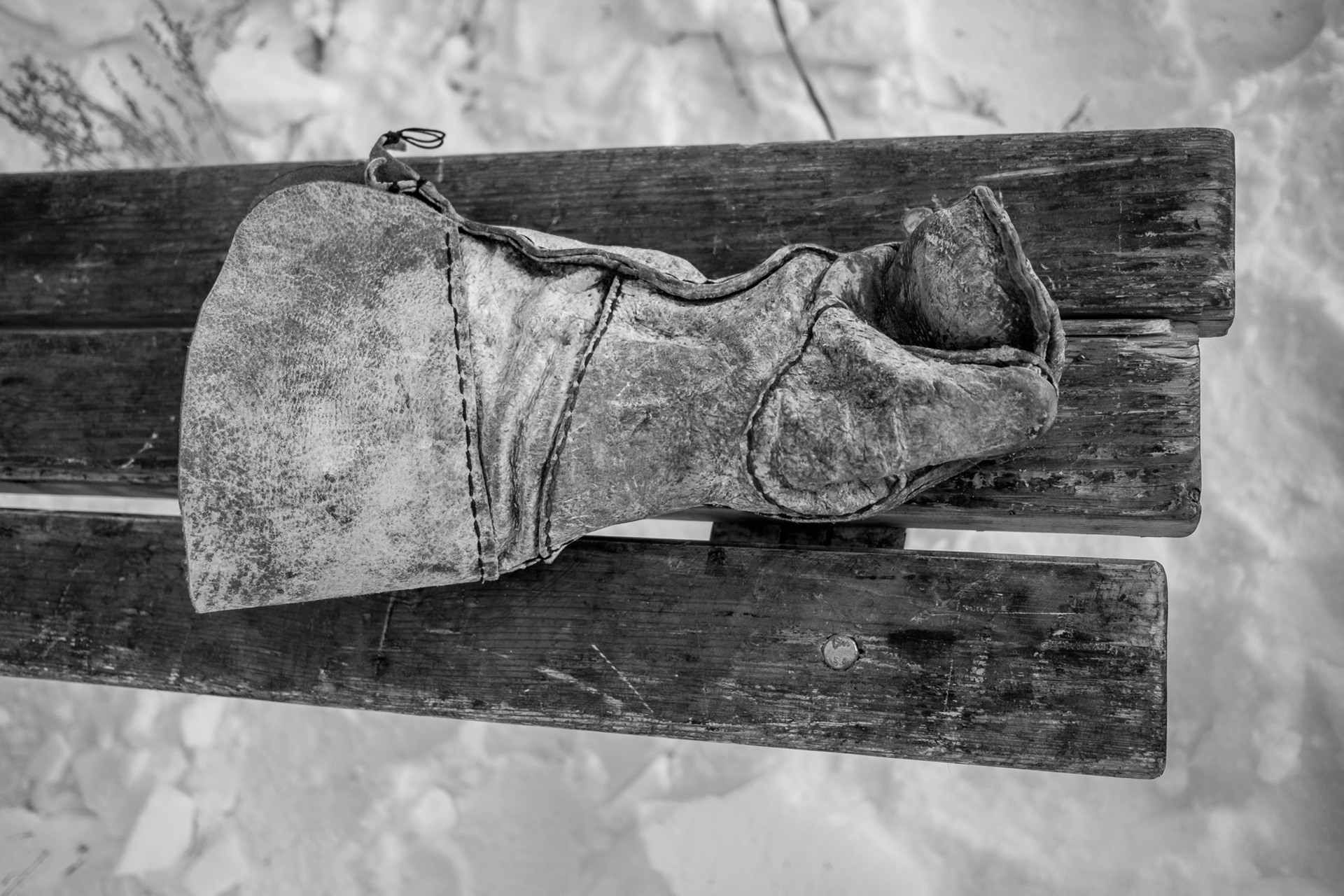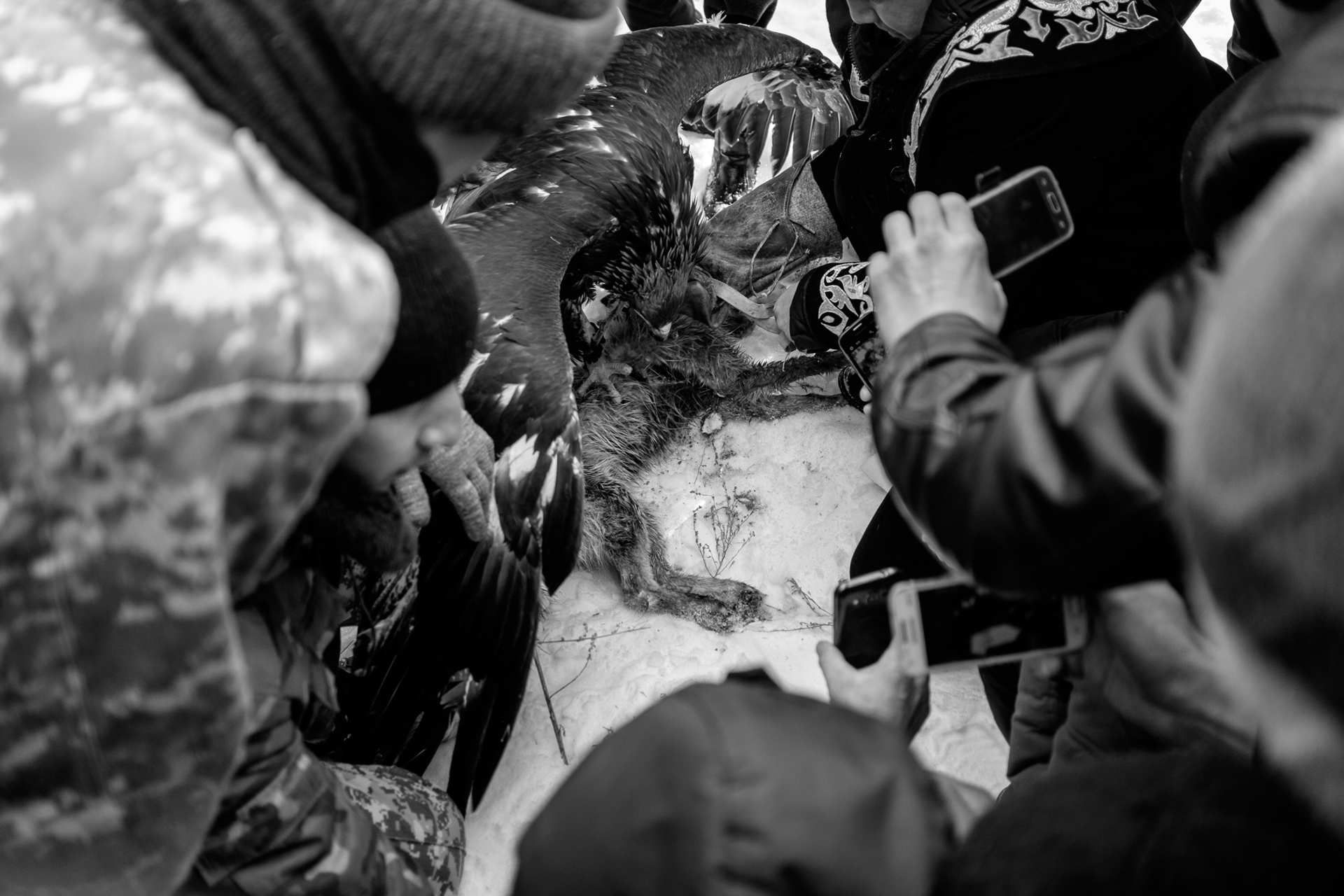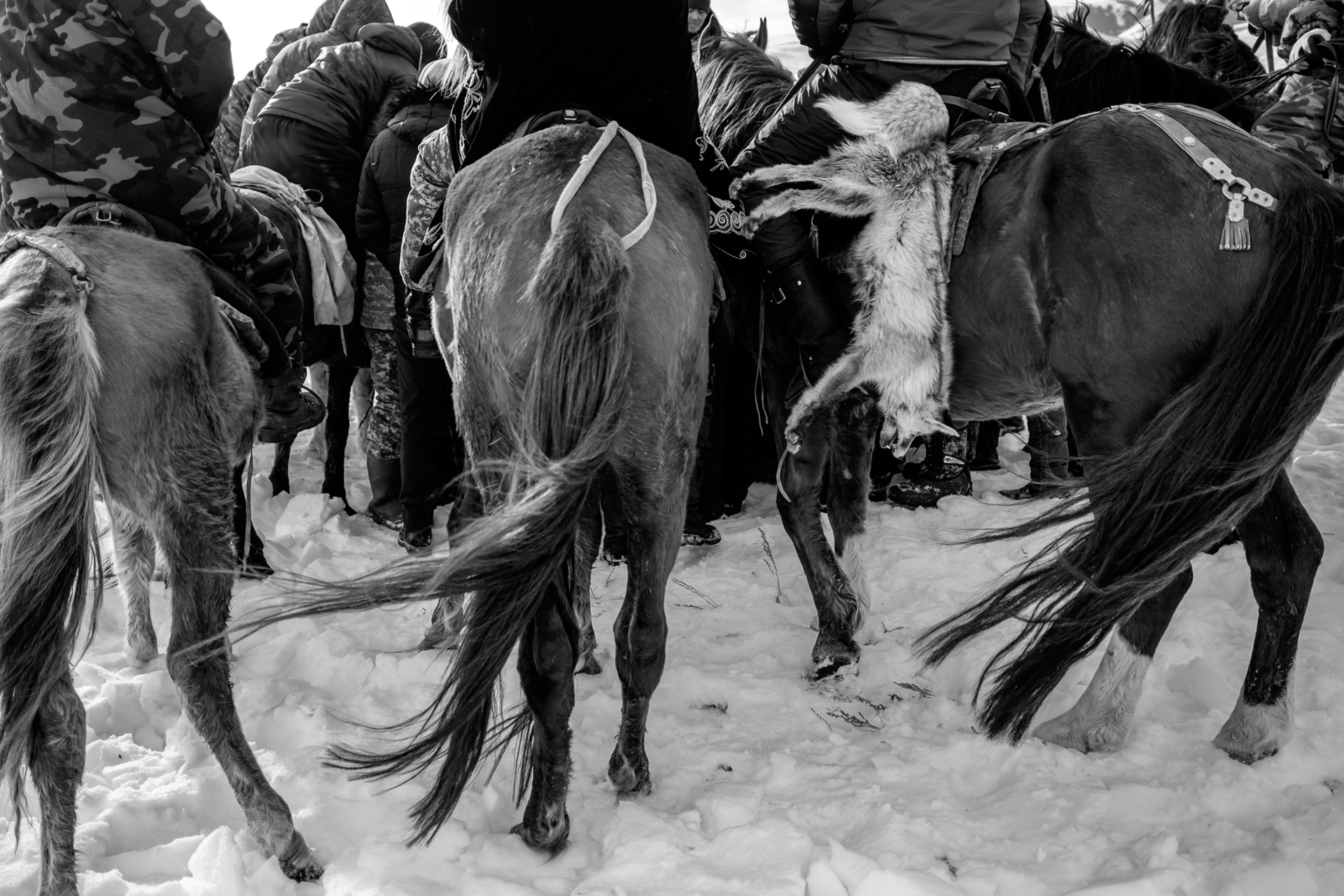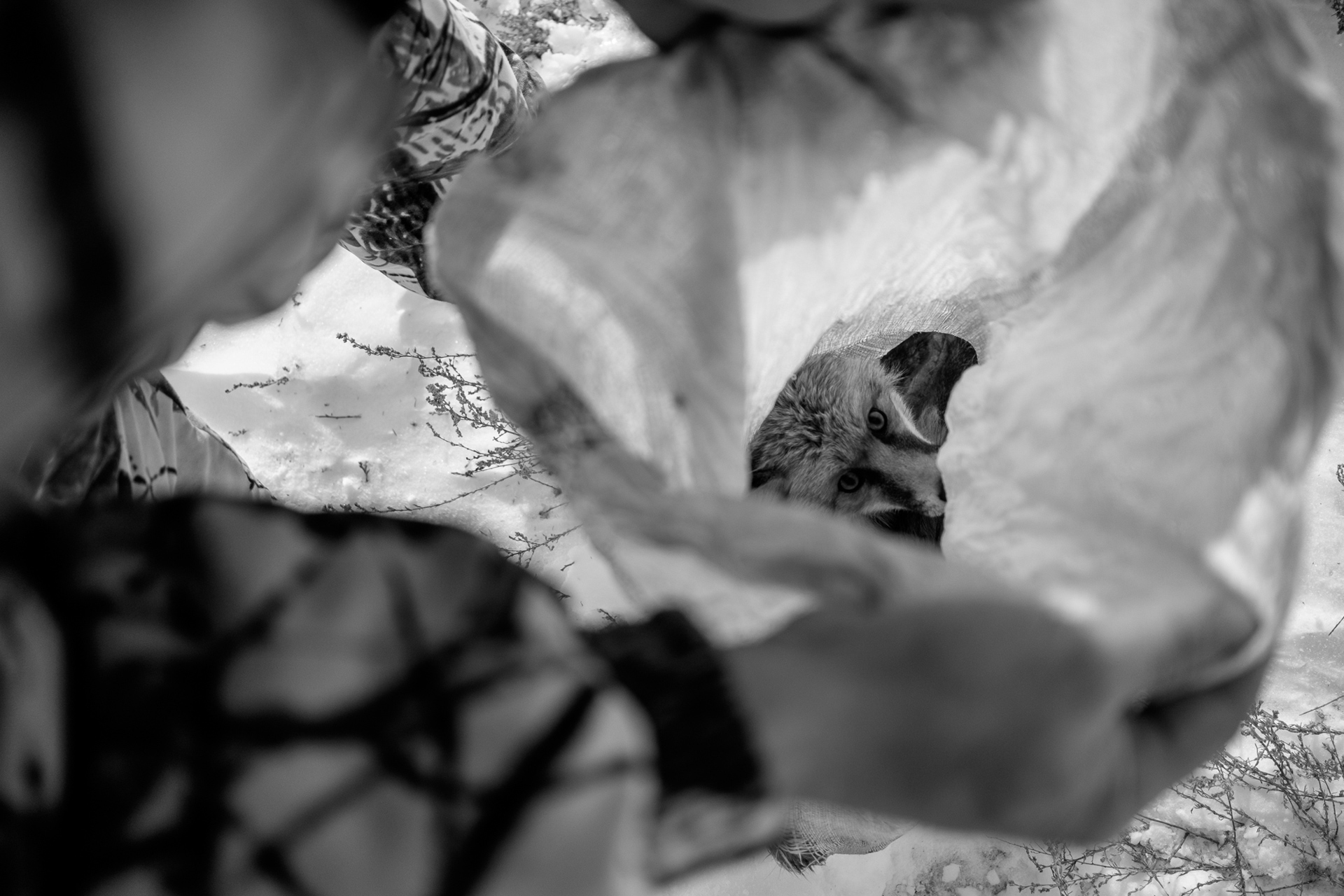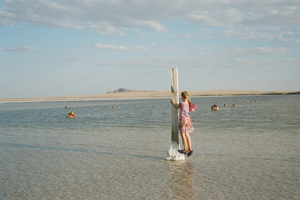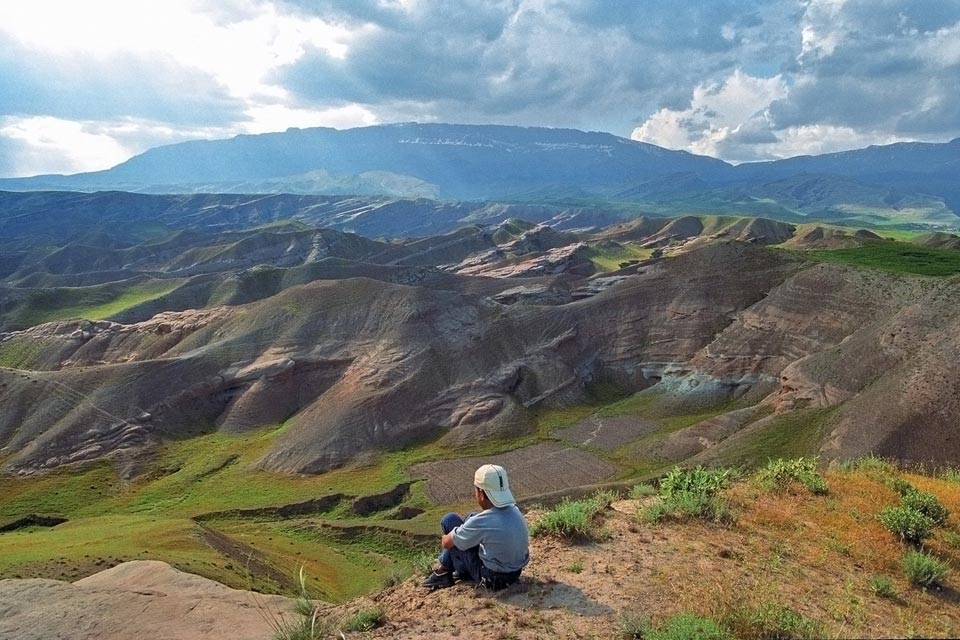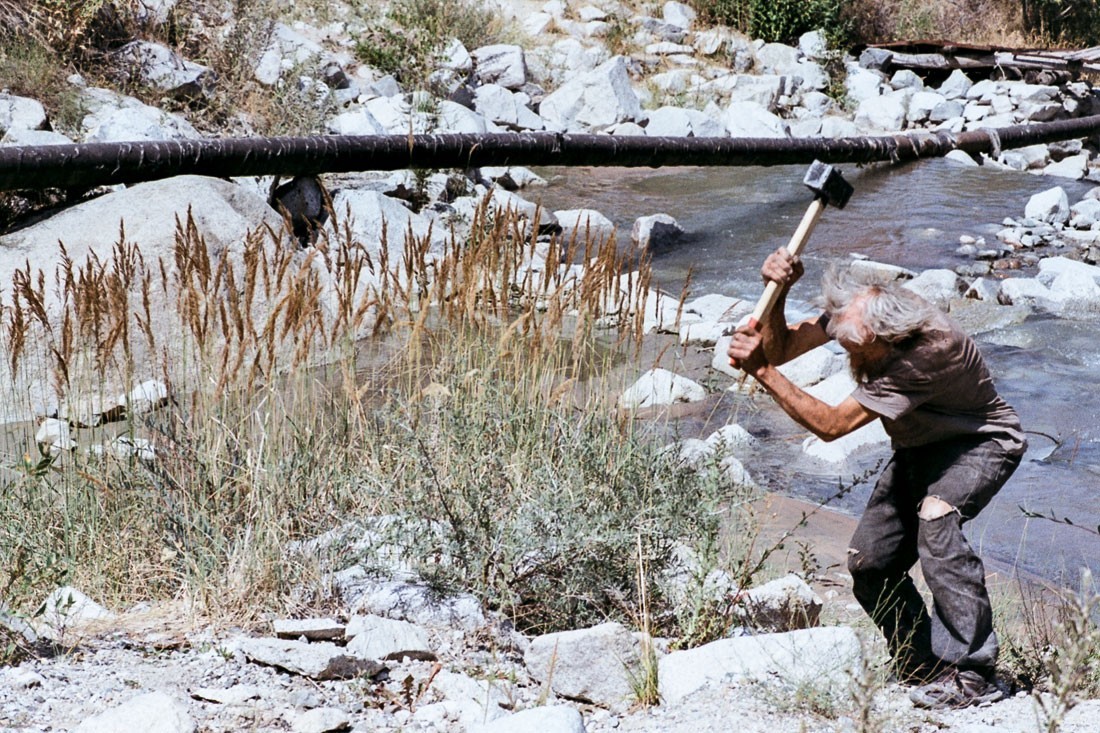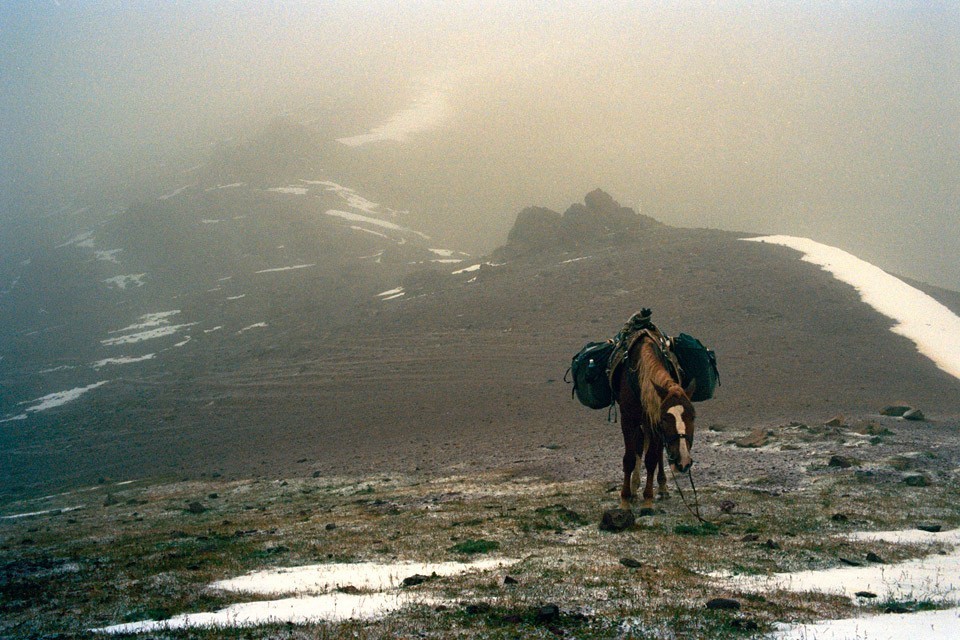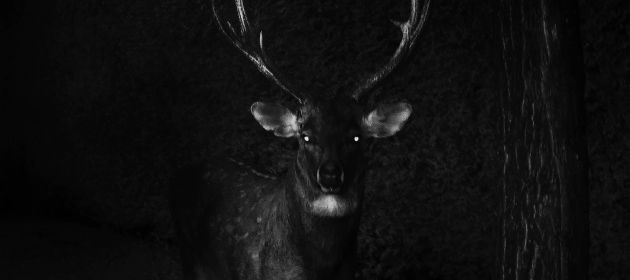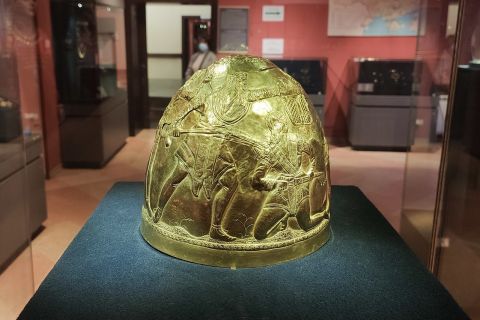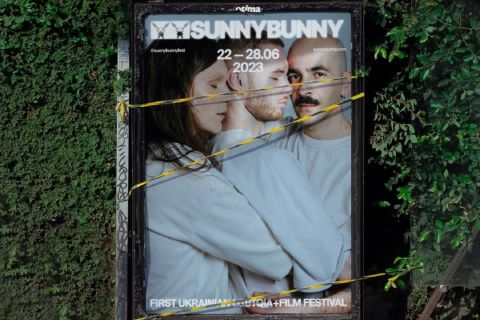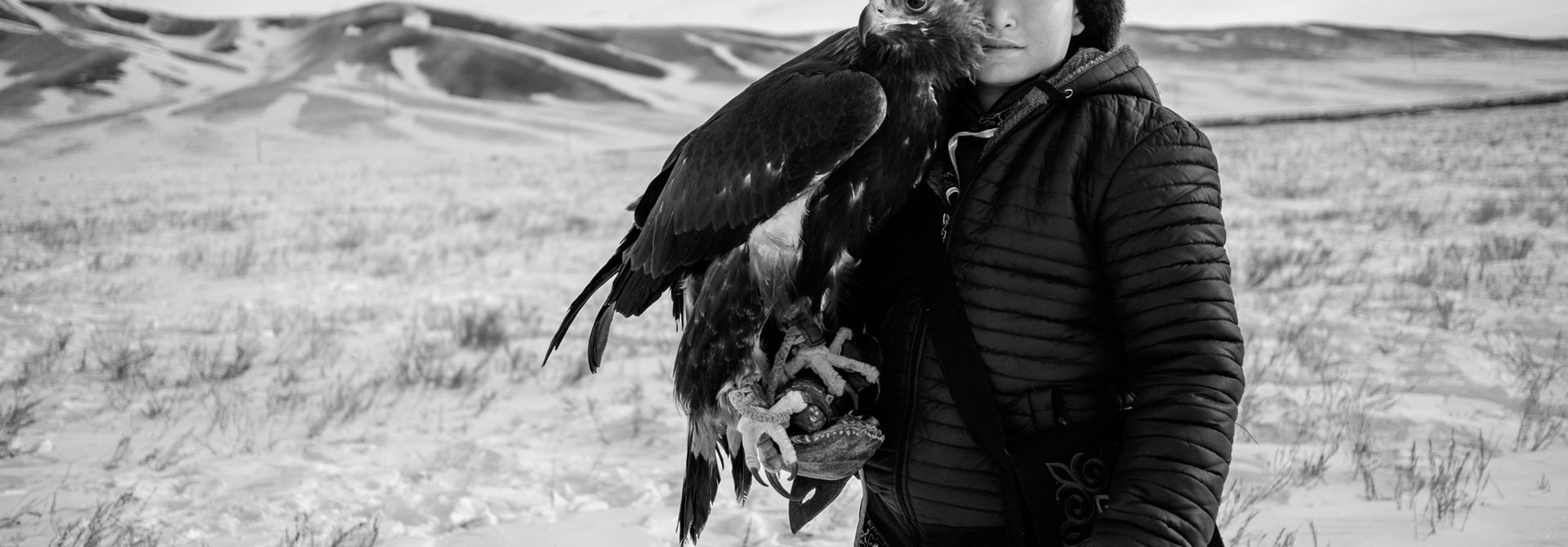
The Man and the Bird: How Kazakh People Hunt with Golden Eagles
Sayatshy — in Kazakh language means ‘hunter with hunting birds’.
Berkutchi — golden eagle catchers who train them for hunt.
Falconry is popular in many countries, including European. But hunting with golden eagles is an exclusively Kazakh national tradition and national idea. A golden eagle is several times bigger and stronger than a falcon — he can catch not only a hare or a fox, but even a wolf or a roe deer for his master.
I stumbled upon information about this Kazakh tradition on the Internet and immediately painted this fairy-tale picture in my mind. There is not too much information about berkutchi online, it is mostly a show for unsophisticated tourists. So I decided to gather information on the spot. This is how I flew to Almaty: judging by the information I found, sayatshy prefer to hunt in the mountains of the Almaty region, there are also berkutchi tourist clubs.
I almost wasted the entire first week: I was wandering the city as a tourist, trying to find at least some kind of contacts of people who are directly related to hunting with golden eagles. Many people have heard of berkutchi, but did not know any in person. Finally, I was introduced to a hunter who was just organizing a competition/festival. It is great luck to be able to observe one of those: the organizers are not very fond of journalists. And a little later, I saw why.
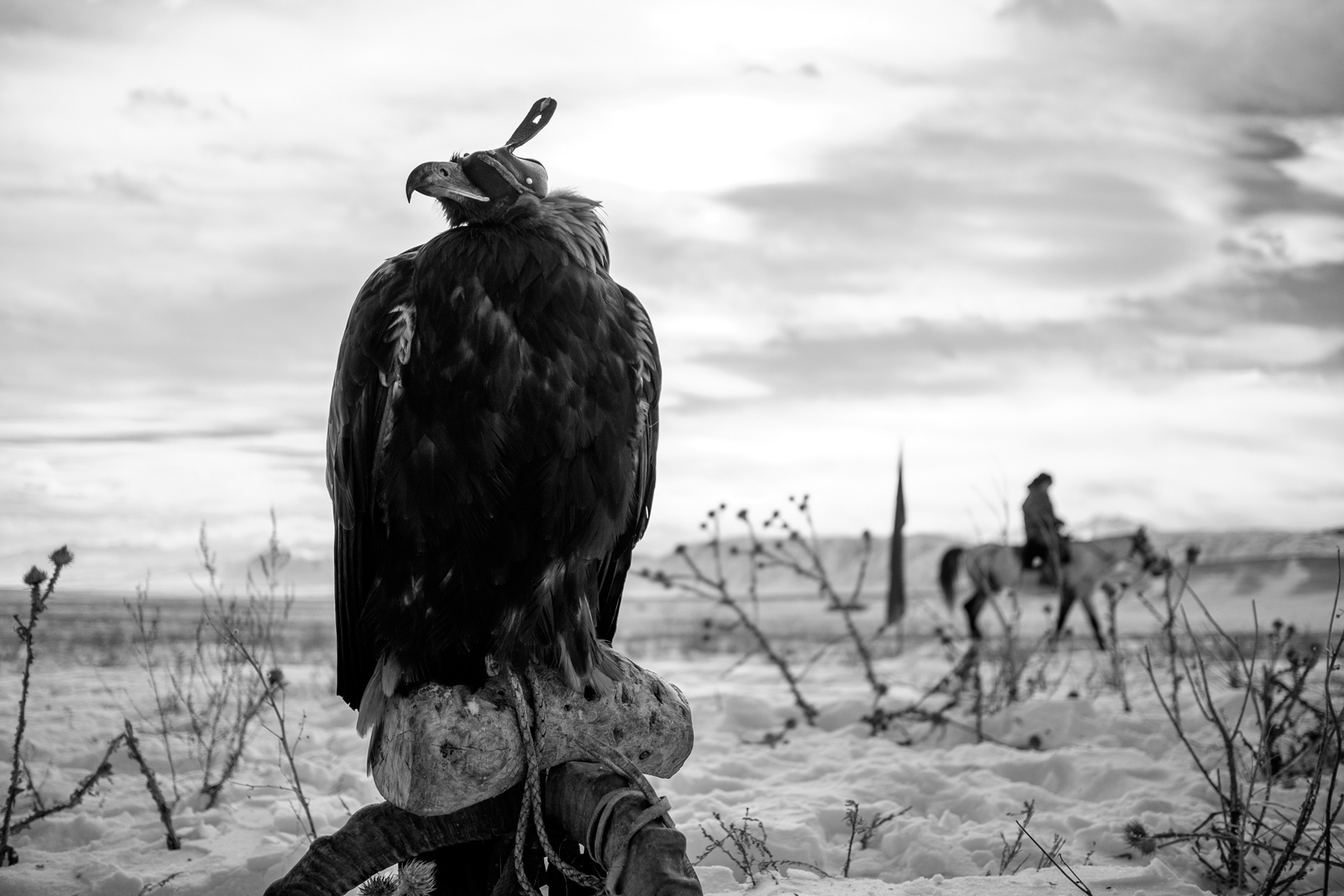
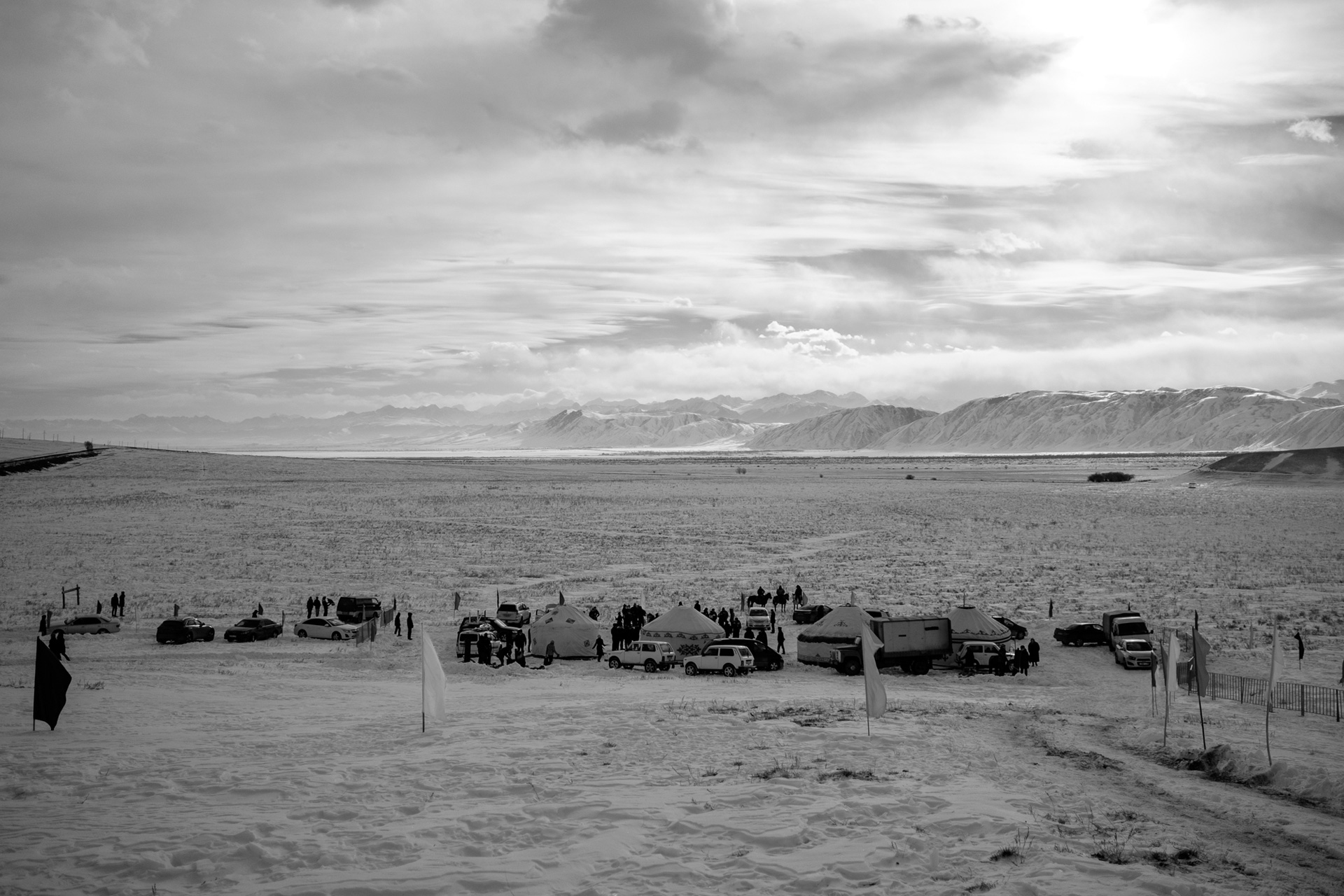
Borderline Poaching
At 4 am, our car left Almaty towards the border between Kazakhstan and China: the festival was held just 30 kilometers from China. Here, the famous Kazakh steppes turn into high mountains, and you feel like a grain of sand on the palm of Mother Earth.
According to the tradition, you can’t buy or trade a golden eagle: a real sayatshy has to catch the bird himself in wild nature and raise it. Of course, there are special reserves that sell the birds, but their price reaches as high as $10,000 — which is an impossible amount for a regular sayatshy.
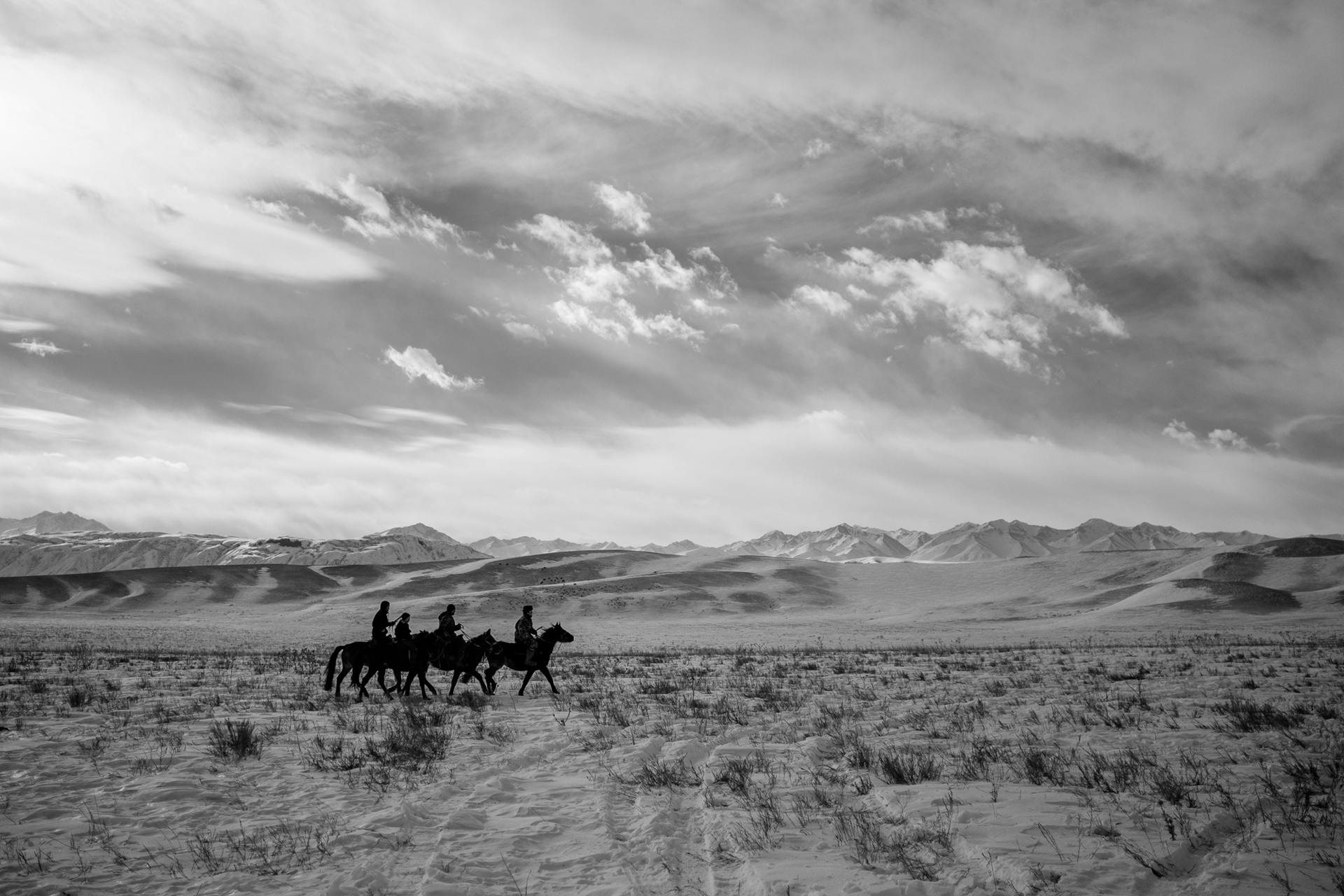
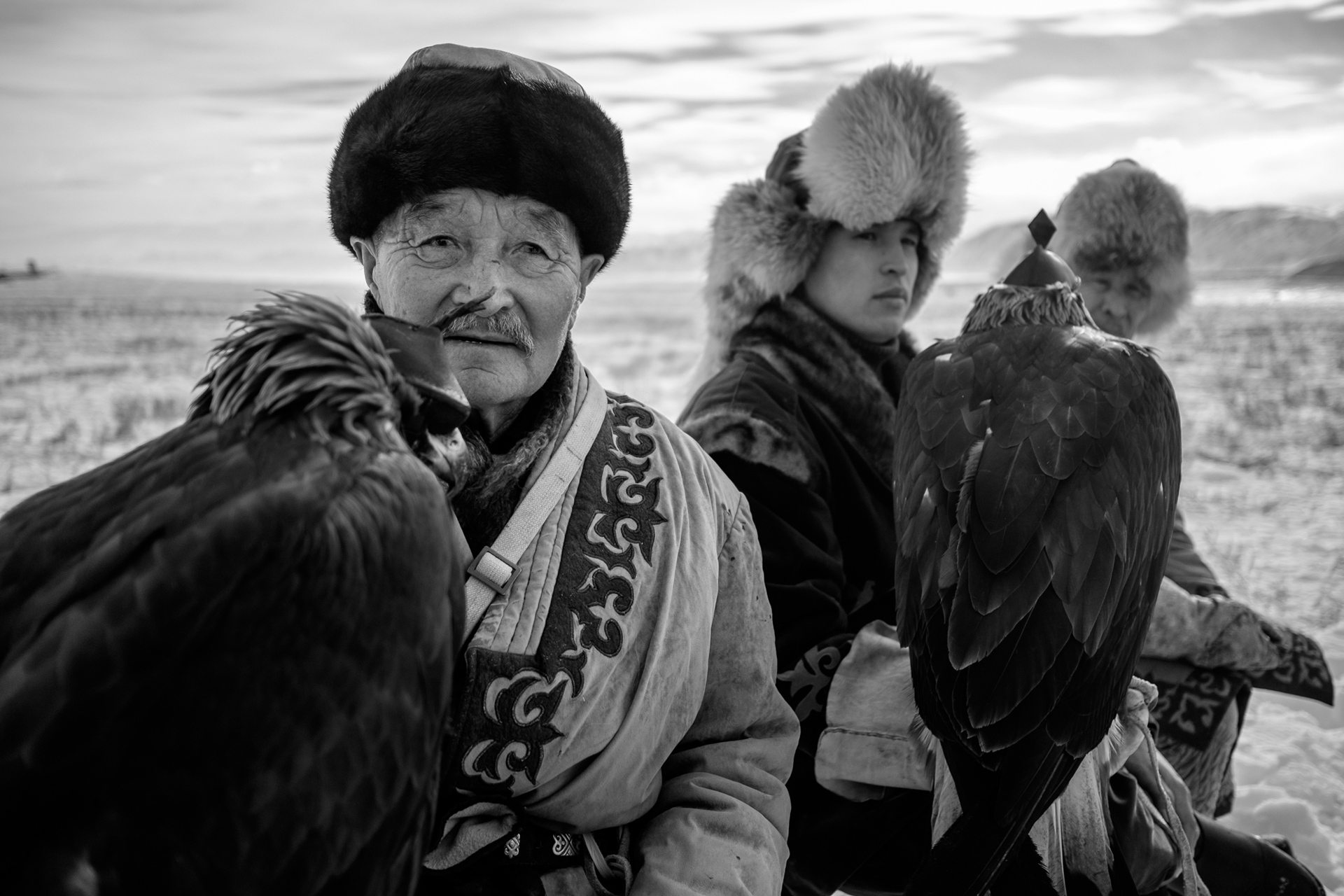
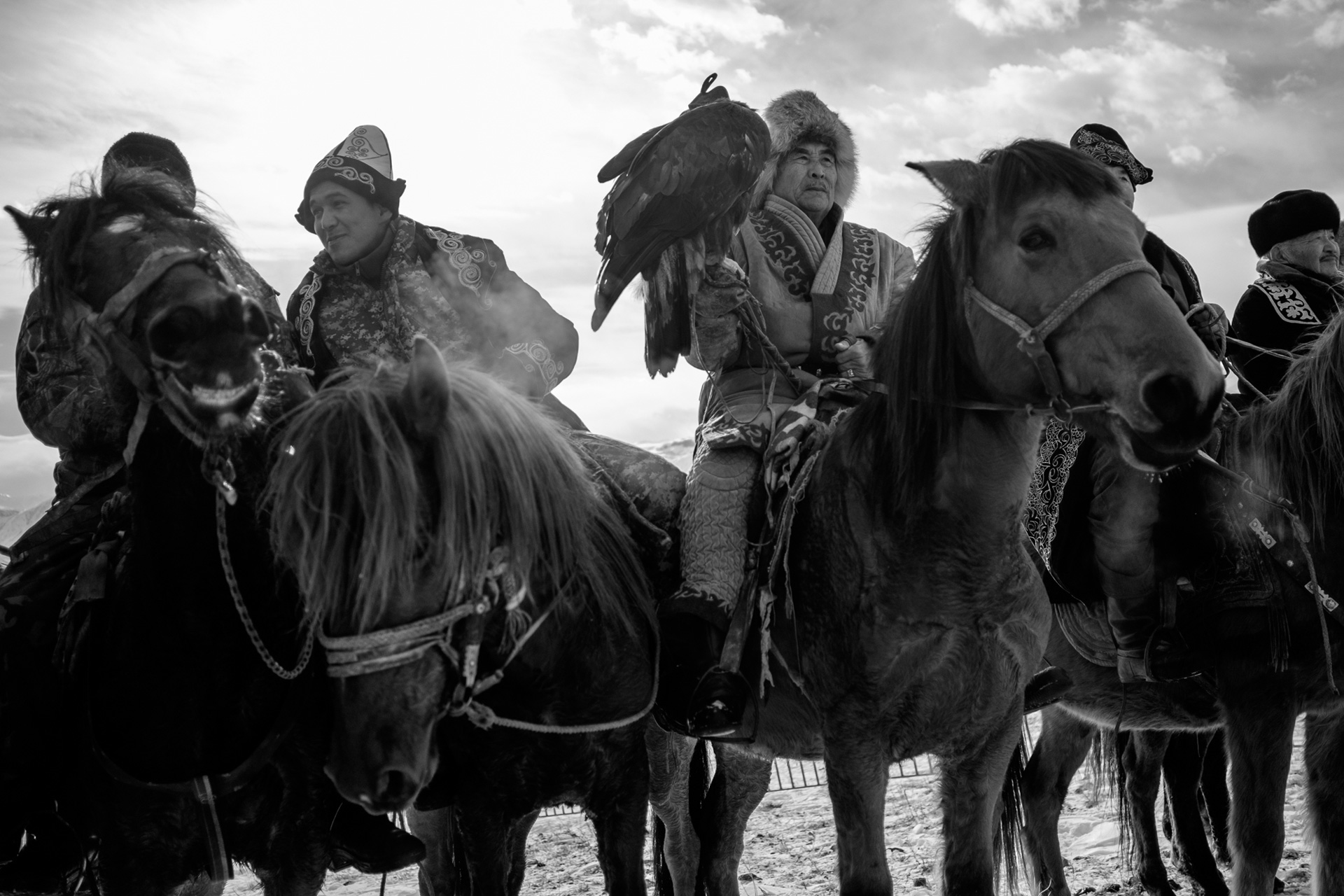
There are also bureaucratic issues. According to the law, to hunt with a bird, a hunter needs to have a passport for it. To get a passport for a bird caught in wild nature means to pass nine circles of bureaucratic hell. A regular Kazakh villager can’t quite manage that, so the locals are walking a thin line between legal hunting and poaching. But the insiders say that the officials know how difficult it is to get the documents, so often close their eyes to violations.
For many Kazakhs, hunting with golden eagles is near to the main reason to be proud of their people and popularizing this tradition is a matter of honor. This is how the festival came into being. It has no commercial goal: most berkutchi hunters are Kazakhs from rural areas. The organizers have covered the travel fee for many participants, because they can’t even pay for travel themselves. As they themselves confess, a hunt for them is not just a craft, but a state of mind, the way to connect to their traditions and roots.
After Skin and After Fox
The way the competition is held is barely different from, say, track and field. The flags, the greeting speeches from the authorities of the settlement and the region, the greeting words from the organizers, the national anthem, the prayer, typical in Kazakhstan, the draw.
The competition has two parts: the sayatshy’s ability to interact with their bird and give signals to it that help it find the target, and the catching of the prey.
In the first part of the competition, a horse is galloping in a field several hundred meters away from the participant, dragging a fox skin. The task of the sayatshy is to take the hood off the golden eagle on the organizer’s command and help it see the target. It is even more important to understand that the golden eagle is ready to catch the target. Then, the bird is hurled up into the sky, it flies up and grabs the fox skin.
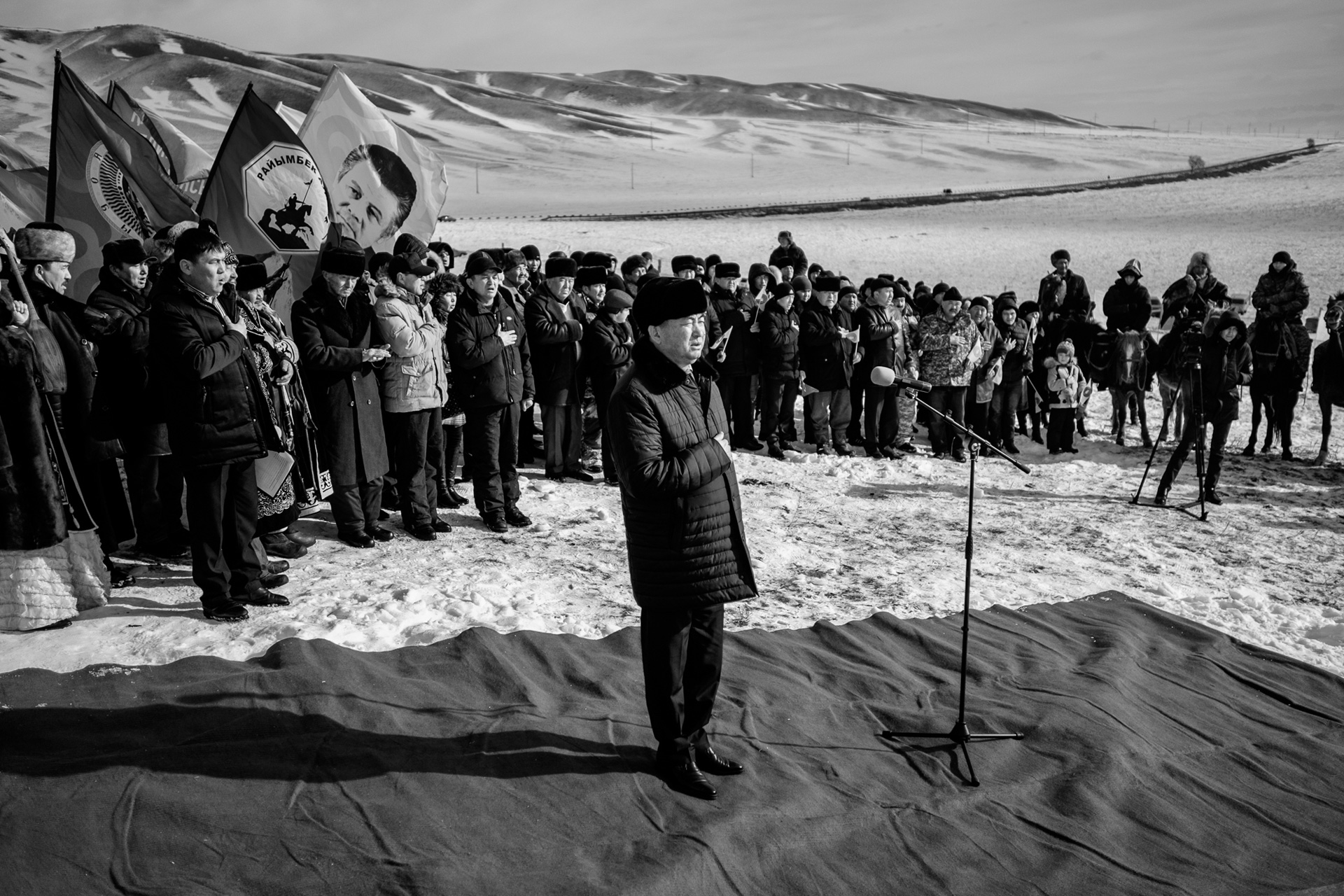
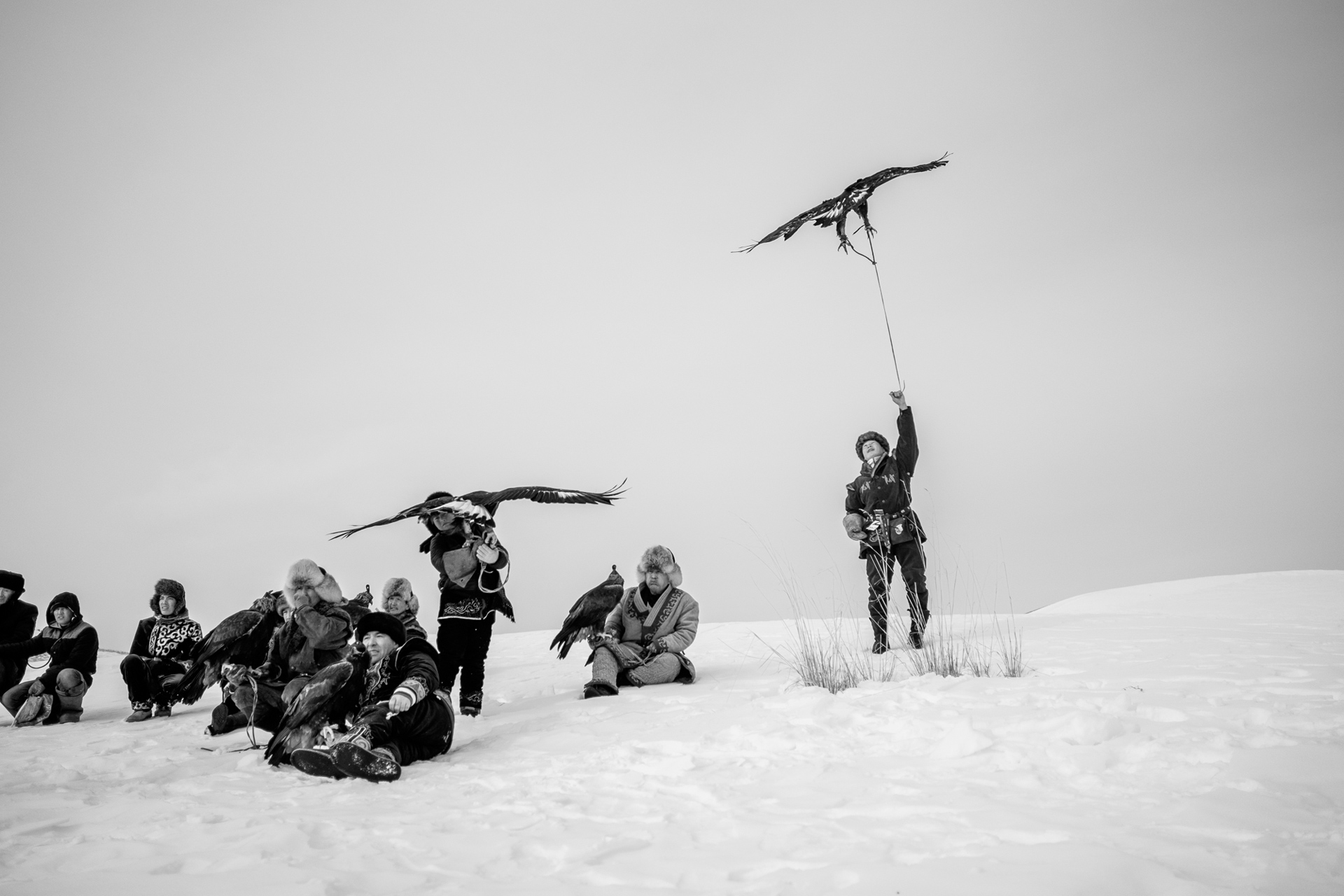
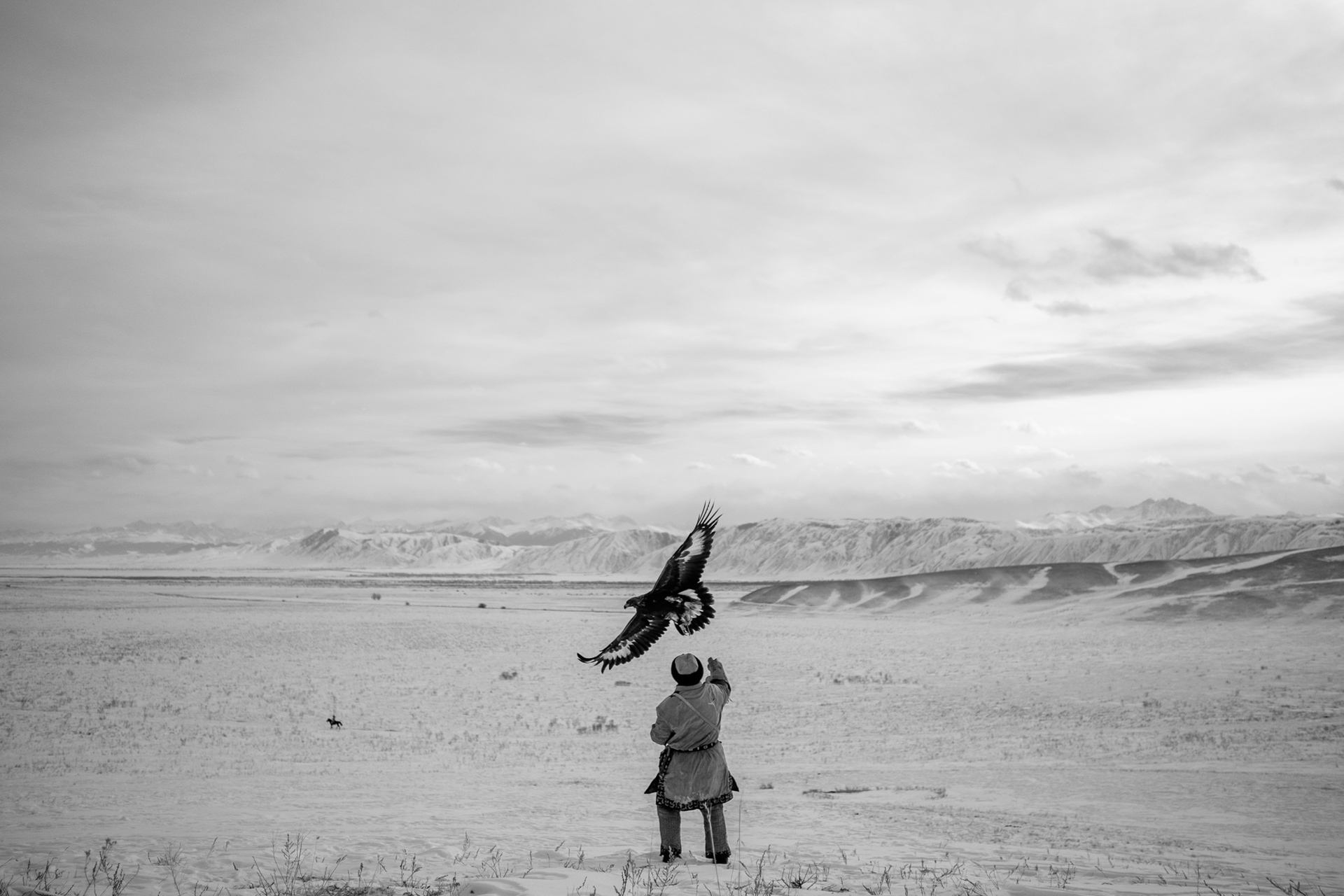
Several participants have withdrawn from the competition at this stage — their golden eagles could not see the target, and after flying up, landed and observed the events.
The second stage is hunting. It is much more simple here: by command, a preliminary prepared live prey, a fox or a hare is released in the hunting area, and the hunter catches it with the help of a bird. The hunter whose golden eagle caught the prey the fastest is the winner. If the prey escapes, the hunter is automatically disqualified.
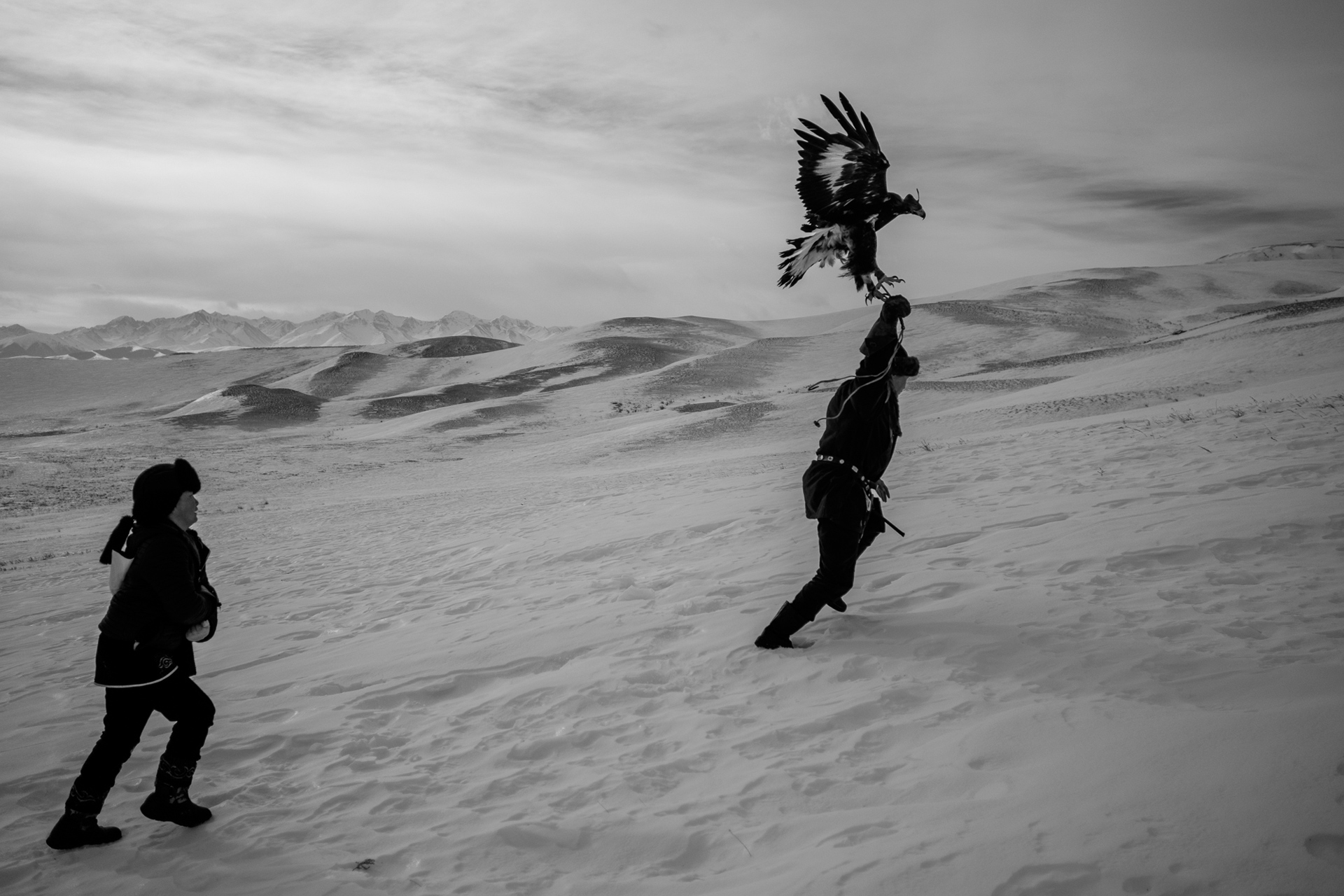
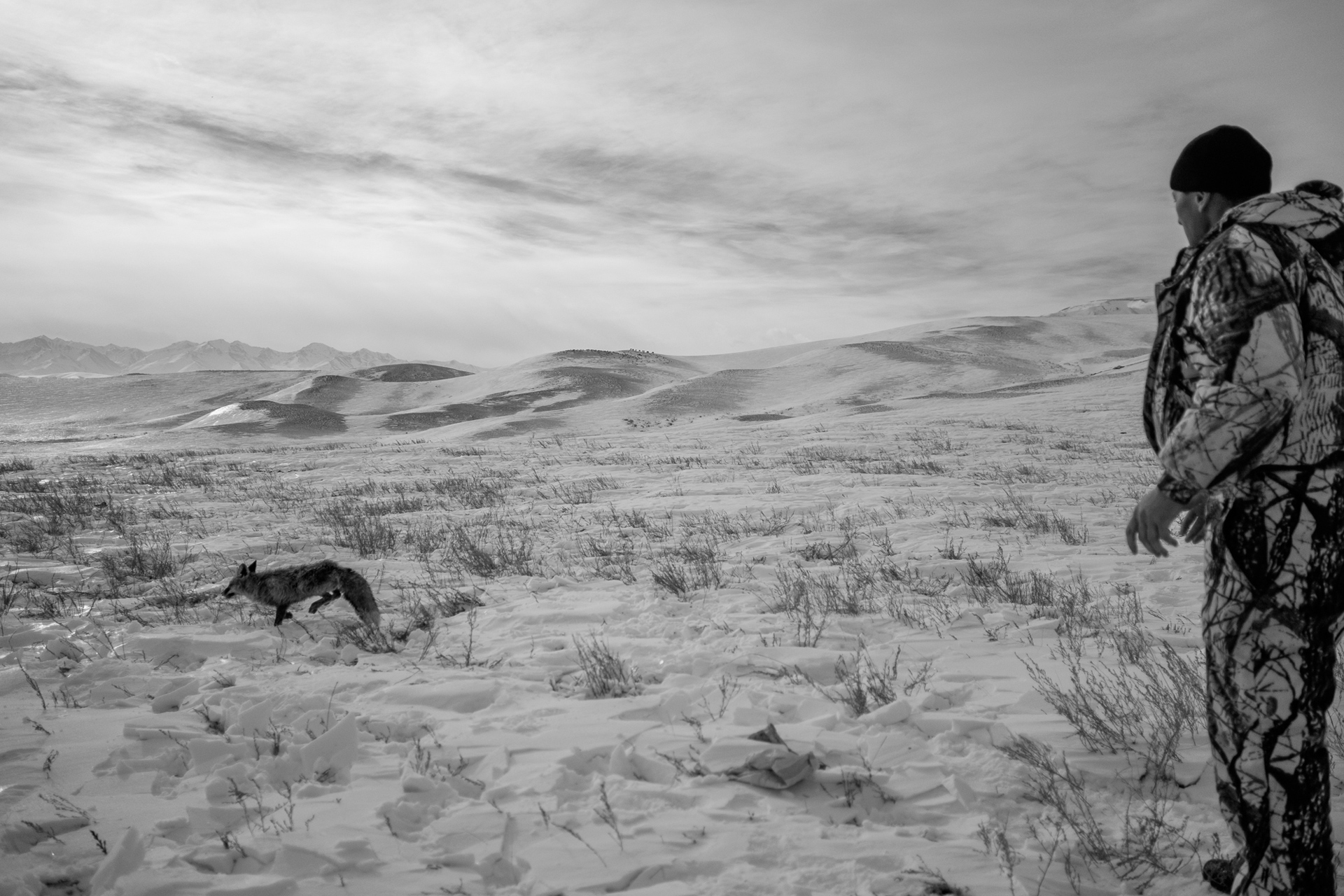
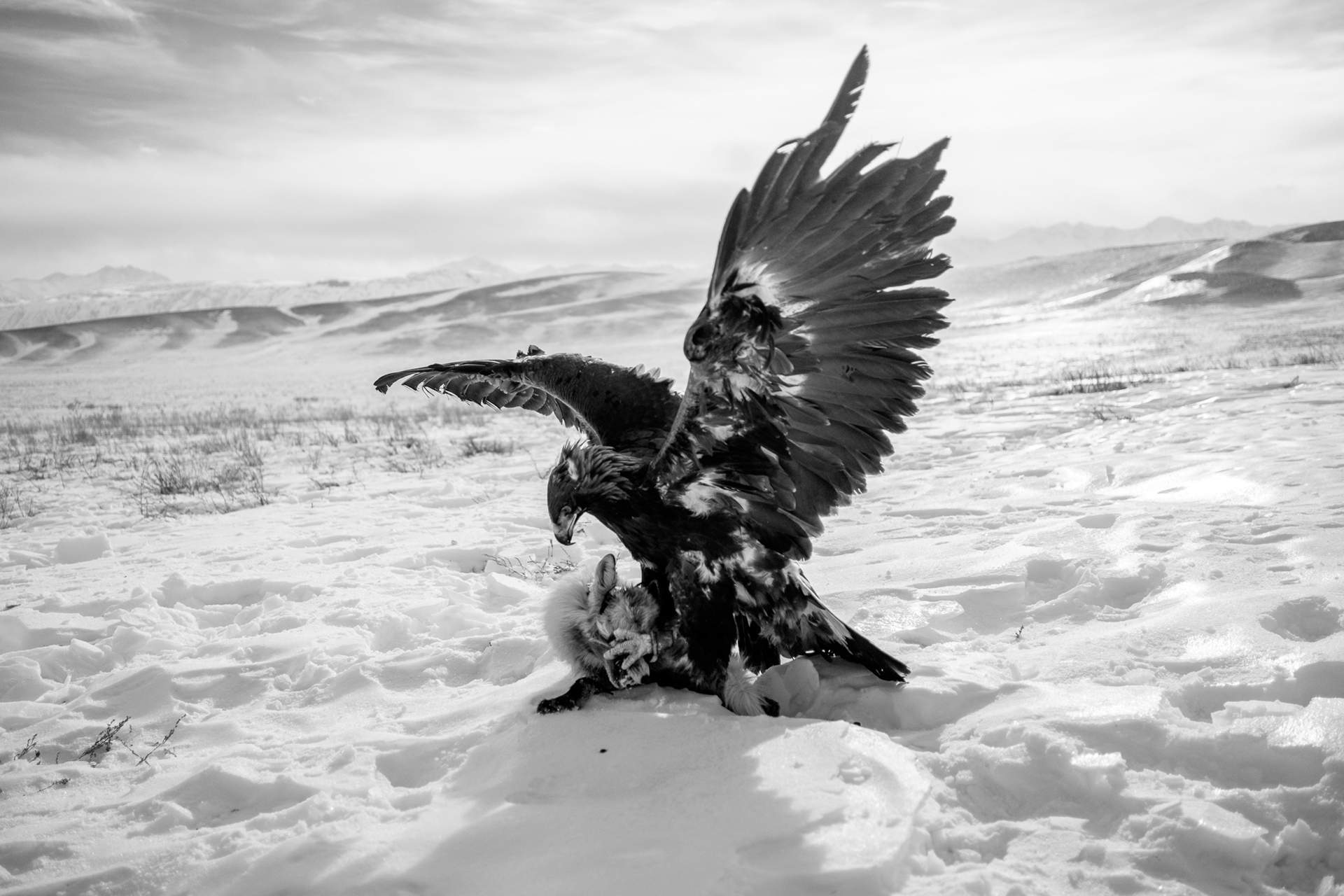
Environmentalists Are Against
It is because of the second stage of the competition that the organizers are not very happy about the press. After a journalist from the capital visited them last year, articles about slaughterer-hunters were published in media outlets, including abroad. The competition was presented almost as the main issue in animal abuse. According to the journalist, sayatshy ‘slaughterers’ not only abuse the birds by keeping them captive, but also torture and kill foxes for the sake of the competition or to train the birds. After such claims were published, the organizers started having problems with animal rights activists. The officials, in their turn, decided to distance themselves from such folk entertainment, which made the complicated relationship with the authorities even more difficult.
However, it is hard for me to imagine a more harmonious relationship between a human and nature than the one that berkutchi have. How can one make a bird listen to a man? A golden eagle can easily strangle or seriously hurt its master. And what prevents a bird from flying away during the hunt? But it always comes back. According to sayatshy themselves, golden eagles do not forgive cruelty or abuse. The relationship of a golden eagle and berkutchi is based on mutual trust and respect.
All sayatshy are great horse riders and pay a lot of attention to breeding horses. Many hunters live in the mountains for months, away from civilization, in harmony with nature. It is hard to find a man more devoted to nature than a hunter with a bird.
